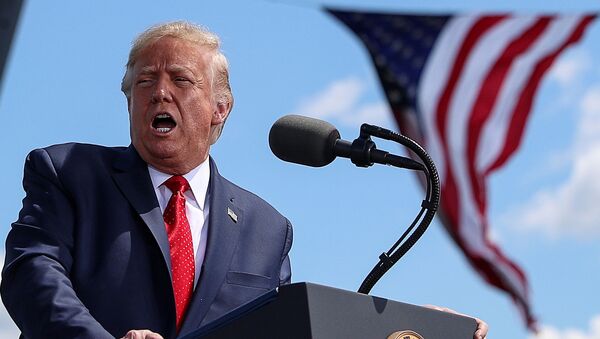On 17 August, Donald Trump said he would pardon a "very, very important" person the next day, but not ex-National Security Agency employee Edward Snowden or former national security adviser Michael Flynn.
"Doing a pardon tomorrow on someone who is very, very important", the president said on his plane.
On 15 August, Trump said at a press conference that he would look into pardoning Edward Snowden, claiming that he was "not that aware of the Snowden situation", but he was "going to look at it".
In June 2013, Snowden handed over to The Washington Post and Guardian newspapers large amounts of classified material about mass surveillance programs that collected telephone, email, and internet browsing data on nearly everyone in the United States, despite US law prohibiting spying on Americans without a court order. Following the revelations, he fled to Hong Kong, but after facing extradition back to the US, he sought refuge in Russia, where in 2014 he was granted a three-year residence permit which was prolonged in 2017.
Flynn was accused of making "false and fraudulent statements" to the FBI regarding the nature of the contacts between the Trump campaign and Russian Ambassador to the US Sergei Kislyak amid the 2016 election campaign. He pleaded guilty to these charges twice. Later, he retracted the plea, insisting that the FBI agents had deliberately misguided him.


